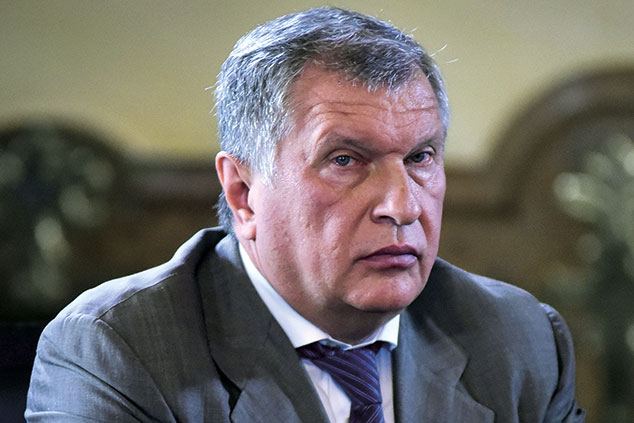
Igor Sechin holds no official position in the Kremlin, but many consider the Rosneft boss the most powerful man in Russia after the president. Will he determine Putin’s successor? Jane Lewis reports.
Vladimir Putin secured a fourth term as Russia’s president last weekend, but the real intrigue lies in what happens next. Barred by the constitution from seeking another term in 2024, Putin “might as well have been firing the starting gun for the race toward his succession”, says The New York Times – “a bare-knuckled, no-holds-barred fight” between the warring factions of his court and their oligarch allies. And in the thick of things will be the biggest behind-the-scenes power monger of the lot: Putin’s right-hand man, Igor Sechin, once dubbed the “Darth Vader of Russia”.
Sechin has no formal role in the Kremlin; his power-base is the state-controlled oil giant Rosneft, which he has led since 2004 and built into “the world’s largest listed oil company”, says the Financial Times. Yet he is one of the most feared men in Russia, renowned, as The Economist notes, “for his willingness to inflict pain on opponents”. A major player among the siloviki (the former and current members of the security services), Sechin “epitomises Russia’s nexus between political power and property”.
The man who followed Putin
Running Rosneft has made Sechin rich: he received 600m roubles (£7.4m) in 2014, but his apparent wealth far exceeds that. In 2016 he sued two Russian newspapers for alleging that he was building a $60m mansion and that his wife owns a $100m yacht. Yet he is still renowned for “combining a legendary work ethic with the zeal of a Jesuit priest”, says Vox, fuelling his long days with orange juice, his favourite drink.
One of the most staunchly conservative figures in Russian politics, Sechin, like Putin, is a native of Leningrad. Born in 1960, into a family of factory workers, he emerged as talented linguist and studied philology at Leningrad University, spending much of the 1980s in Angola and Mozambique as a military translator – a common cover for intelligence agents. In the early 1990s he began working as an office coordinator for Putin, then became deputy mayor of St Petersburg. “He treated Putin as a god before Putin was a god,” one Russian pundit told The Economist.“At first no one took him seriously,” notes another. “He showed everyone they were wrong.”
When Putin became president in 2000, Sechin became the gatekeeper and used his power “to mercilessly go after his rivals”, says Vox. Some allege he was behind the downfall of Mikhail Khodorkovsky, boss of the oil company Yukos – when
he showed political ambitions. Khodorkovsky was jailed for tax fraud, Yukos broken up, and its assets sold to Rosneft.
Flexing his muscles
That pattern has continued, suggests the FT. In 2014 Vladimir Yevtushenkov, owner of conglomerate Sistema, was arrested and his oil firm Bashneft seized by the state. Bashneft was sold to Rosneft, which then sued Yevtushenkov for asset-stripping. In December, he paid 100bn roubles in a settlement. Meanwhile, Alexei Ulyukayev, the former economy minister, was sentenced to eight years in a penal colony after being accused of demanding bribes over the Bashneft case, following a farcical sting involving the exchange of a basket of sausages containing $2m. At his trial, Ulyukayev paraphrased John Donne’s poem For whom the Bell tolls (answer: “for you”). That may sum up the uncertainty among the elite about who will emerge on top. For some, says Forbes, Sechin is now “more feared than Putin”.